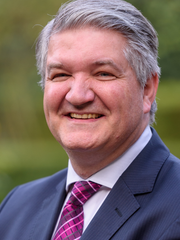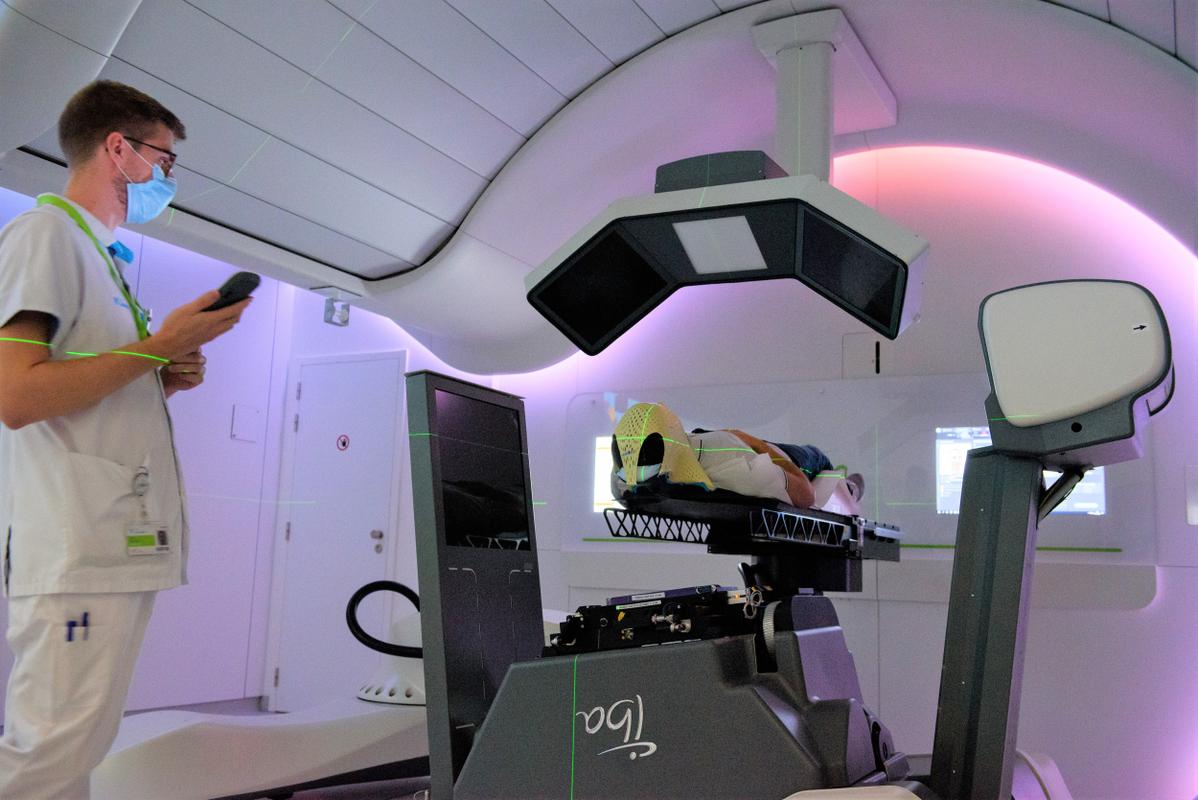Proton therapy is a innovative type of radiotherapy that radiates malignant tumours very accurately, limiting damage to healthy tissue. The therapy is on the rise worldwide for the treatment of a number of cancers for which it is extra important to protect surrounding tissue. It concerns children with cancer or adults with a tumours close to vital or vulnerable organs, such as the brain, the eyes, heart or lungs.
Prof. dr. Karin Haustermans, radiotherapist-oncologist at UZ Leuven: “Hopefully new treaments can provide a better quality of life for patients with oesophageal cancer. They usually undergo multimodal treatment and can experience significant adverse effects. We are therefore extremely please to be able to participate in this trial and are very proud to have treated the first patient in Leuven zijn within the study protocol. This was only made possible thanks to the multidisciplinary team achievement that prepared everything meticulously.”
Prof. dr. Marianne Nordsmark, principal investigator of the trial at the university of Aarhus, Denmark: “It is a big milestone for the PROTECT-study to be able to recruit patients in Belgium. In the coming months we expect other sites from all over Europe to start doing this, which will bring us closer to our target of recruiting 396 patients by 2026.”
Reduce lung complications
The trial includes patients with operable oesophageal cancer, that first received radiation a couple of weeks prior to their surgery. They were randomly divided into two groups: one half would get proton irradiation and the other half classic radiation.
As a primary end point, the researchers would like at lung complications after the procedure: they hope the risk will be lower in the group that first received proton therapy, which in principle would mean the lungs would be exposed to a lower radiation dosage.
The department of thoracic surgery at UZ Leuven, including prof. dr. Philippe Nafteux, thoracic surgeon and care programme manager for oesophageal cancer, is closely involved in the trial.
- Visit the website of the PROTECT study
- Interested to participate as a patient? Discuss it with your doctor.
- This research was made possible thanks to the support of Kom op tegen Kanker.


PARTICLE, short for Particle Therapy Interuniversity Center Leuven, is a clinical and scientific partnership between six university hospitals and their network hospitals. This is a first for our country, as is the structural cooperation across the language border.
